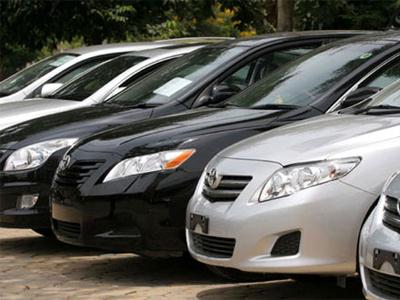MoF considering penalising loophole auto importers

The time to start collecting back taxes will be after the date Ministry of Finance (MoF) Circular 118/2009/TT-BTC dated June 9, 2009 took effect (45 days from the date of signing).
Under current regulations, each Viet Kieu repatriate is allowed to bring one personal car to Vietnam for personal use. This vehicle would be exempted from import duties and value added tax and only incur special consumption tax.
In a report en route to the prime minister, Deputy Minister of Finance Do Hoang Anh Tuan argued that in light of Clause 21 in the Import Export Tax Law, people who had imported commodities that were exempt from tax and changed their use would have to pay back taxes up to the time they changed the use of those commodities.
Clause 6 stipulated that commodities that had changed their usage would pay the appropriate tax rates at the time the change occurred.
Accordingly, Viet Kieu repatriates who brought cars or other vehicles into Vietnam for personal use but later sold the vehicles prior to registering them (to avoid issues with the transition) were obligated to pay back taxes (import duty and value added tax).
The Ministry of Foreign Affairs agreed with the MoF’s proposal, but argued that collection of taxes needed to closely follow the law and have a specific timeline.
In its comments on the proposal, the Ministry of Public Security recommended stricter sanctions and that Viet Kieu who had sold their automobiles would have to pay back taxes and penalty fees for administrative violations.
Deputy Minister of Public Security Pham Quy Ngo even proposed confiscating the vehicles that were believed to cash in on legal loopholes.
Luxury automobiles imported by Viet Kieu for what they registered as personal use jumped sharply in 2011-2012. They were often very high-end and sold immediately after entering the country, resulting in a massive loss for the state budget as they avoided duties and taxes normally imposed on imported vehicles.
The MoF is reviewing its policies to establish whether it should go after back taxes on these automobiles.
What the stars mean:
★ Poor ★ ★ Promising ★★★ Good ★★★★ Very good ★★★★★ Exceptional
Latest News
More News
- 0.1 per cent tax proposed on each transfer of digital assets (February 05, 2026 | 17:27)
- Ministry of Finance tightens policy delivery at start of year (February 05, 2026 | 17:26)
- Vietnam steps up market reforms as FTSE Russell reviews upgrade progress (February 05, 2026 | 17:20)
- 2025 profits mixed amid strong energy and farming results (February 05, 2026 | 17:18)
- Cashless payments hit 28 times GDP in 2025 (February 04, 2026 | 18:09)
- SSIAM and DBJ launch Japan Vietnam Capital Fund (February 04, 2026 | 15:57)
- Banks target stronger profits, credit growth in 2026 (February 04, 2026 | 15:43)
- Vietnam on path to investment-grade rating (February 03, 2026 | 13:07)
- Consumer finance sector posts sharp profit growth (February 03, 2026 | 13:05)
- Insurance market building the next chapter of protection (February 02, 2026 | 11:16)
















 Mobile Version
Mobile Version